Synthesis of Plasmin‐Loaded Fe3O4@CaCO3 Nanoparticles: Towards Next Generation of Thrombolytic Drugs
Nikita Serov - SCAMT First-Year MCs, together with colleagues from the laboratory "Nanofarmaceutics" published an article in the journal ChemNanoMat.31.07.2019
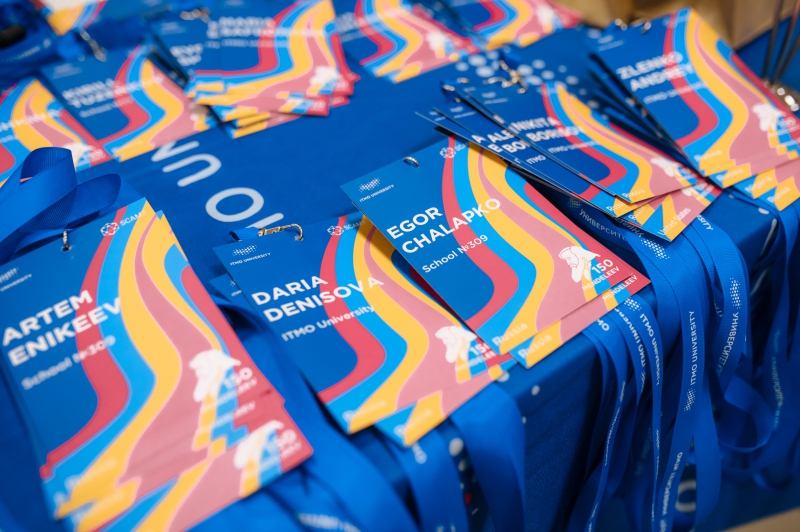
Results of Mendeleev 150 International Conference at ITMO University
ITMO University has recently hosted the Mendeleev 150 International Conference. Held as part of the International Year of the Periodic Table, the conference brought together leading specialists in the field of chemistry, physics, and history of chemistry from Russia, the USA, the UK, Spain, Italy, Germany, Israel, China, and other countries.30.07.2019
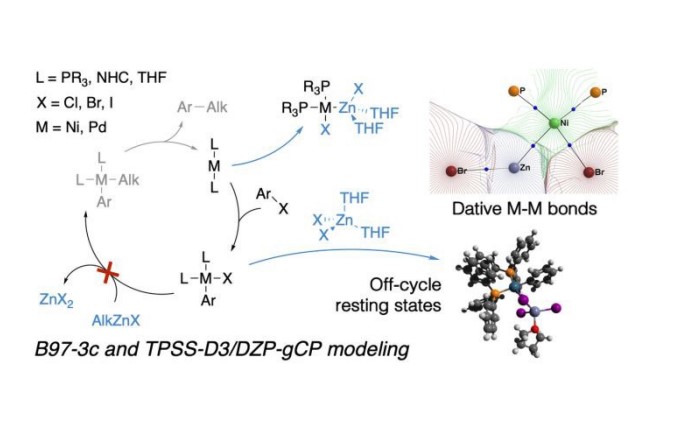
Intermetallic Species in the Negishi Coupling and Their Involvement in Inhibition Pathways
New article by TheoMAT group leader Evgeny A. Pidko in "Catalysis Science & Technology" Journal19.07.2019
SCAMT Workshop Week: English-Language Summer School on Topical Research and Cutting-Edge Equipment
On June 24-30, ITMO University’s SCAMT Laboratory held the international summer educational course SCAMT Workshop Week. Participants from Greece, Iran, China and Russia attended lectures and workshops and collaborated on projects in groups. The main goal of the course was to help the young scientists obtain experience of working with modern equipment and achieve a practical, real-world result.08.07.2019
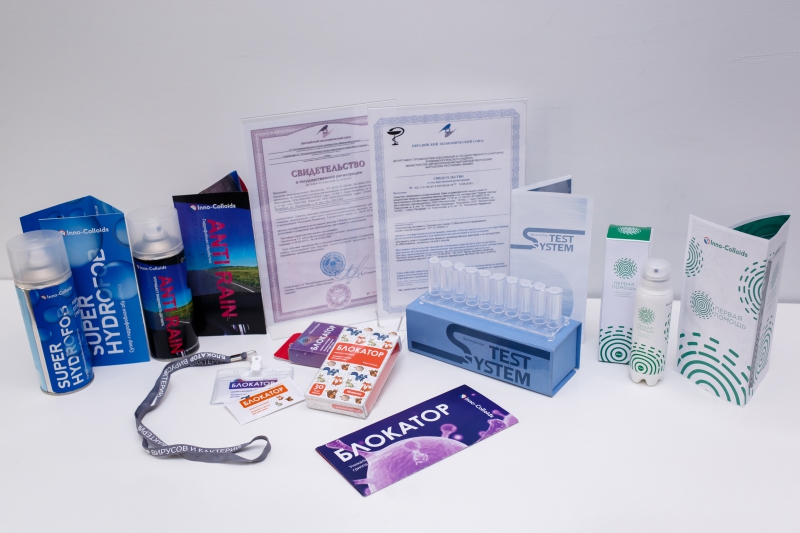
ChemBio Cluster’s Small Innovative Enterprise Innocolloid Started Paying Dividends to ITMO
The small innovative enterprise “Innocolloid” was created by the staff of ITMO University’s ChemBio Cluster in 2017. In the year and a half of its existence, the company has signed several deals with major representatives of the business community and, beginning from the first quarter of 2019, started paying dividends to its co-founder, ITMO University.01.07.2019
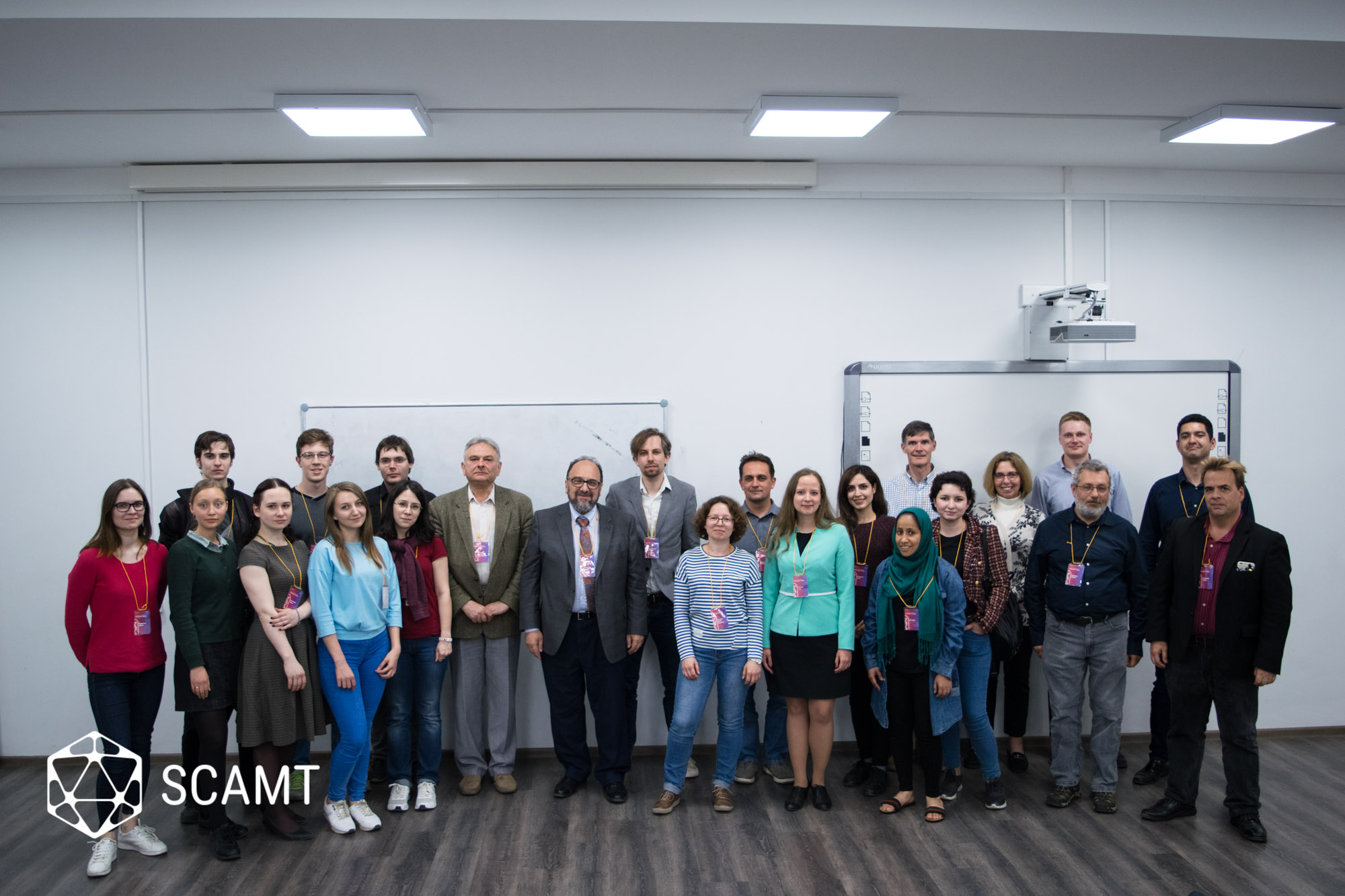
SCAMT hosted world-known scientists during the Workshop "From Genes to Drugs"
The colleagues from the University of South Carolina together with Russian scientists gave pitches on the advanced topics of Cancer Therapeutics.07.06.2019
“Expert” Analytical Center Subject Rankings: ITMO University Becomes 2019 Leader in Computer Science, Engineering and Chemistry
ITMO University retained its leadership position in the field of Computer Science (including the Artificial Intelligence subject area), and also took the lead in chemistry, chemical technologies and management among Russian universities. The rankings focus on research work at universities and the quality of publications.20.05.2019
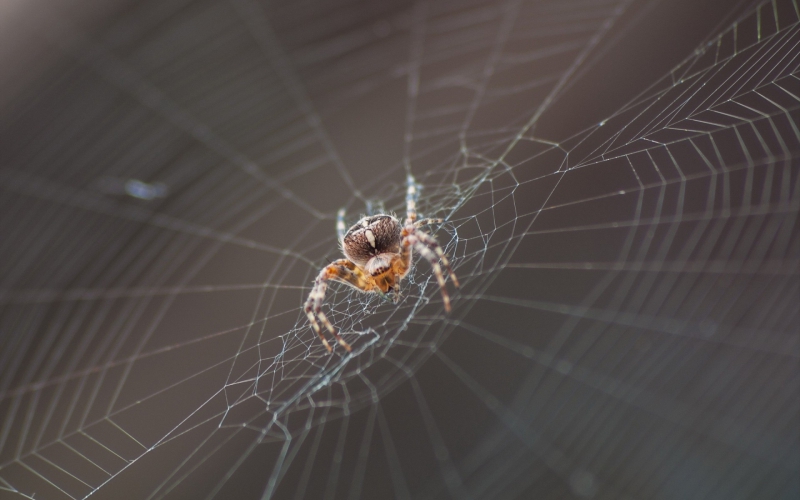
ITMO University’s Young Scientists Win SIE Support Grants - SCAMT second-year Master’s student Aleksandra Paramonova is one of them
Eight Master’s and PhD students have been named among this year’s winners of the grant program UMNIK (Russian: “brainiac”), organized by the Foundation for Assistance to Small Innovative Enterprises (FASIE). We’ve spoken to Aleksandra Paramonova to learn what she plans to do with her grant.30.04.2019
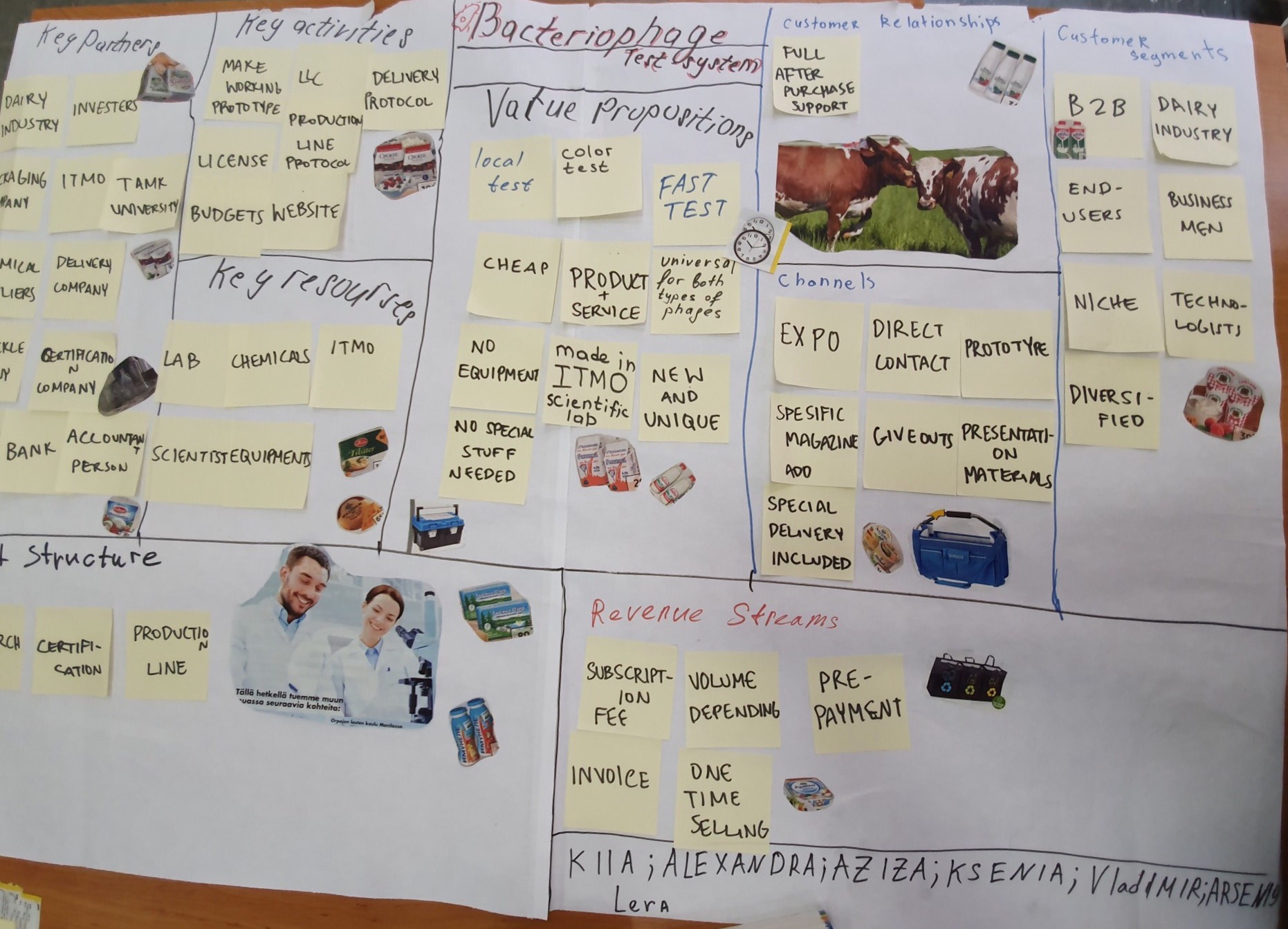
Business Model Canvas: Visualizing Your Business Ideas
What is Business Model Canvas and how can it help startupers in forming and developing their business ideas in the shortest amount of time possible? This was the focus of an intensive workshop recently hosted by ITMO University, the participants of which included over 20 students (including SCAMT students) from Russia and Finland. The workshop was delivered by experts from Tampere University of Applied Sciences (TAMK), who also shared about other tools for management of business processes and the difference in business approaches in Russia and Finland.15.04.2019
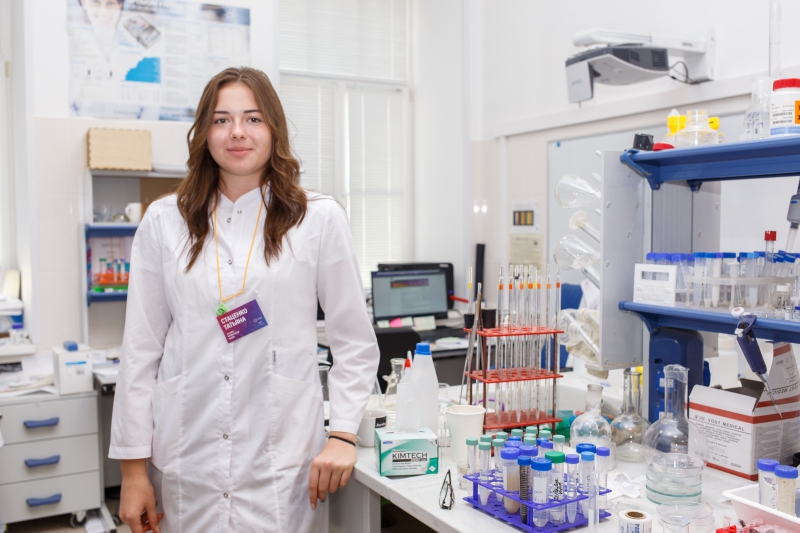
The Results of Workshop Week at SCAMT Lab
SCAMT Workshop Week is a summer school in a unique new format. Over the course of a week, its participants work on one of the six research projects and hone their practical skills. This year’s students have synthesized a nanopharmaceutical drug and magnetic bacteria, printed an optical sensor, built a nanobot and worked on other hi-tech inventions. 40 students were selected from among 200 applicants from Russia and neighboring countries.28.03.2019

SCAMT students were awarded with SCAMT SCHOLARSHIP
SCAMT scholarship is a unique grant which is given to the 1st year master’s students who already showed scientific results and aiming to achieve more with their projects.27.03.2019
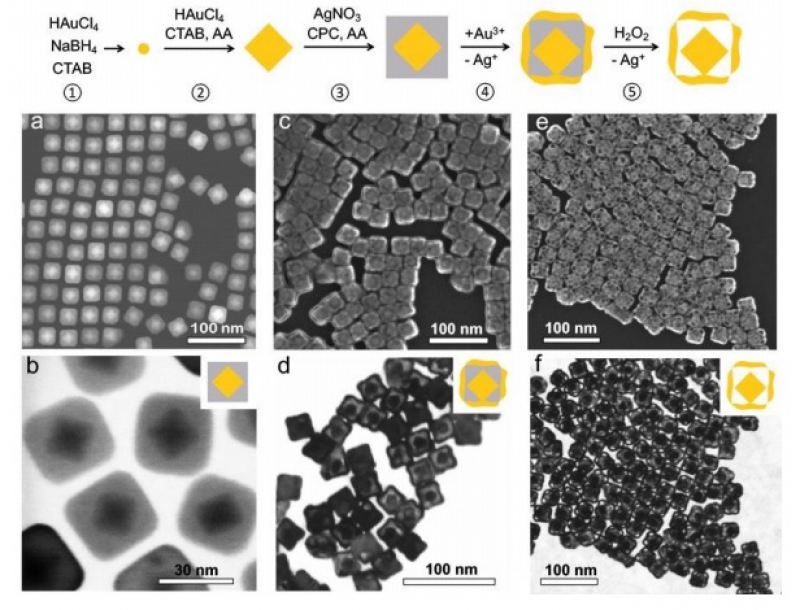
Gold Nanoparticles and Canadian Science: ITMO Student’s Internship at University of Waterloo
Ksenia Mosina, a Master’s student at ITMO University’s SCAMT Laboratory, went to Canada as part of her student exchange program to participate in research on the synthesis of gold core-shell nanoparticles for biosensing and photocatalysis. The results of the research were published in . In this interview with ITMO.NEWS, Ksenia shares about her experiences and the skills she acquired in the Canadian laboratory.21.03.2019
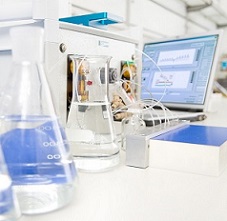
Chemists 'Print' Sensors for Nano-Objects
Young scientists from ITMO University proposed a new type of optical nano-sensors. Their operating principle is based on the interaction of light in thin films: a similar effect can be observed in soap bubbles. Such sensors can be quickly manufactured using an inkjet printer and special ink made of titanium dioxide. In the future, the sensors can be used for rapid biomedical analysis. The results are in Nanoscale.04.03.2019
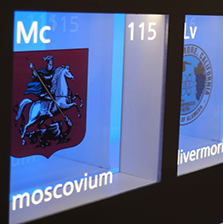
International Year of Periodic Table Proclaimed Open in Paris
1869 is considered to be the year of discovery of the Periodic System by the Russian scientist Dmitri Mendeleev. To commemorate the 150th anniversary of this important milestone, the General Assembly of the United Nations proclaimed 2019 the International Year of the Periodic Table of Chemical Elements (IYPT 2019).05.02.2019
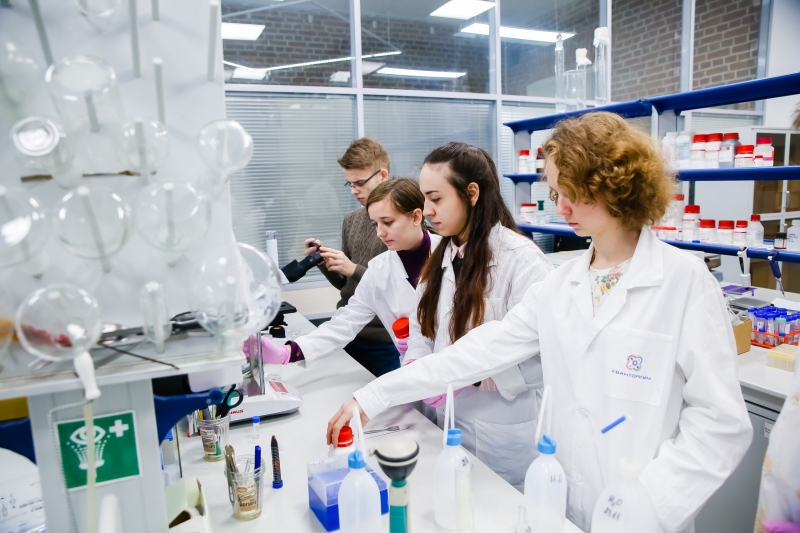
Robot’s DNA, Biofuel Cells and Holographic Protection: SCAMT Workshop Week at ITMO
Organized at ITMO for the second time, the event brought together 55 Bachelor’s and Master’s students from 18 regions of Russia, as well as Ukraine and Belarus.30.01.2019